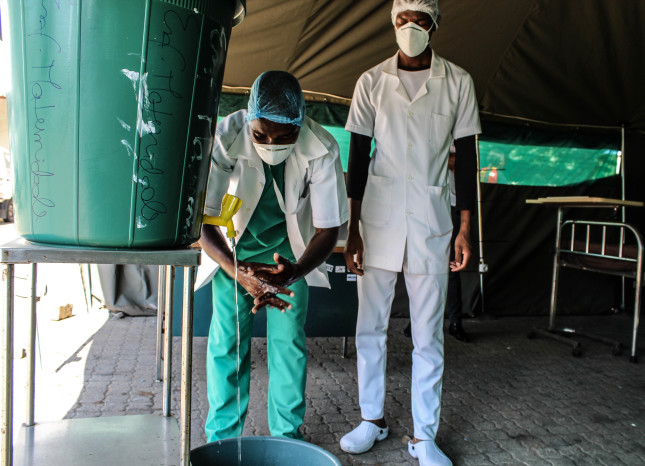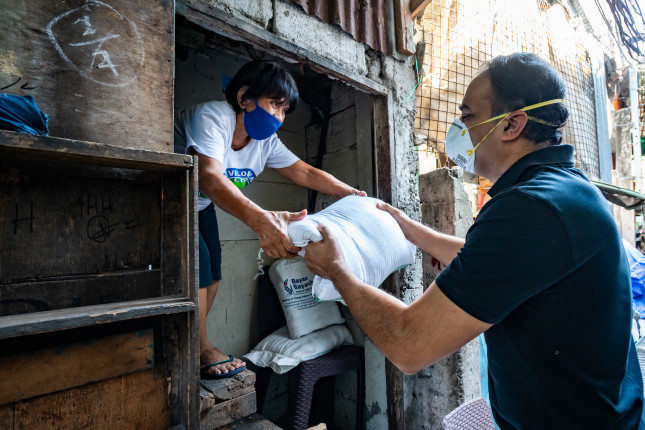-
Strengthening Fragile States: Why It Makes Sense to Invest in Global Health
›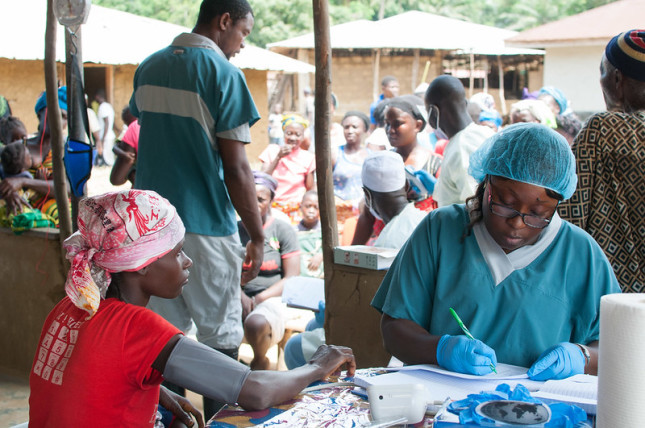
Fragile states, where 1.8 billion people live, continue to be where one is most likely to find extreme poverty, violent extremism, and those most vulnerable to natural disasters and pandemics, said Nancy Lindborg, President and CEO of United States Institute of Peace, at a recent Truman Center event on the ties between national security, global health, and development. Those governments that do not have the capacity to meet the needs of their people, she said, also tend to be the ones that cannot manage external shocks.
-
Women, Race, and COVID-19: A Conversation with Representative Alma Adams
›
“The pandemic has shown us in the starkest terms how wide the gaps are in health outcomes between Black and White America and between men and women,” said Representative Alma Adams (D-NC-12) at a recent Wilson Center event on women, race, and COVID-19 in the United States. “COVID-19 has revealed what the Black community and communities of color have known for a long time, health outcomes are further compounded by systemic and structural racism,” said Rep. Alma Adams. And COVID-19 has exposed what women have known for a long time. Gender inequality exists, it threatens economic empowerment, and it increases vulnerabilities.
-
Refugees and COVID-19: A Closer Look at the Syrian and Rohingya Crises
›
“We all know that while no one is immune from the Covid-19 virus—and people of all types have caught the virus and died from it—it is the world’s most vulnerable communities that have suffered disproportionately from the pandemic,” said Michael Kugelman, Deputy Director and Senior Associate for the Wilson Center’s Asia Program. He spoke at a recent Wilson Center event on the impact of the COVID-19 pandemic on refugee communities. As of 2019, 1 percent of humanity was displaced. That’s more than 79.5 million people. The COVID-19 pandemic has exacerbated the vulnerabilities of these people. “The health pandemic is fostering a new pandemic of poverty,” said Matthew Reynolds, Regional Representative for the U.S. and the Caribbean at the United Nations High Commissioner for Refugees (UNHCR).
-
Against My Will: Harmful Practices Threaten Gender Equality Worldwide
›
“Our world is grappling with the COVID-19 pandemic and also coming to terms with systematic racism and oppression that black communities and communities of color continue to experience in the United States and in other parts of the world,” said Sarah Craven, Director of the Washington, D.C. office at the United Nations Population Fund (UNFPA) at a recent webinar launching UNFPA’s 2020 State of the World’s Population Report. This year’s report, titled Against My Will, covers three widespread practices that violate human rights, but are still accepted in many cultures—son preference, child marriage, and female genital mutilation/cutting (FGM/C).
-
Preventing the Next Pandemic: Zoonotic Diseases and Future Outbreaks
› To recover from the devastating impacts of COVID-19, we will need to understand the risks and environmental factors that caused the novel coronavirus and other zoonotic diseases to emerge in the first place, according to a new report by the United Nations Environment Programme and the International Livestock Research Institute. The report, Preventing the Next Pandemic – Zoonotic Diseases and How to Break the Chain of Transmission, examines the root causes of the COVID-19 pandemic and other zoonotic diseases. It also explores the complex linkages between biological and non-living factors that impact our global ecosystem and spread diseases.
To recover from the devastating impacts of COVID-19, we will need to understand the risks and environmental factors that caused the novel coronavirus and other zoonotic diseases to emerge in the first place, according to a new report by the United Nations Environment Programme and the International Livestock Research Institute. The report, Preventing the Next Pandemic – Zoonotic Diseases and How to Break the Chain of Transmission, examines the root causes of the COVID-19 pandemic and other zoonotic diseases. It also explores the complex linkages between biological and non-living factors that impact our global ecosystem and spread diseases. -
The Great Disruptor: COVID-19 Threatens Essential Health Services for Women and Children
›
“The world is at risk of losing millions of women and children due to reductions in coverage of essential services, reversing hard-earned progress towards the SDGs [Sustainable Development Goals] to date and posing catastrophic consequences for households and communities,” said Dr. Koki Agarwal, Project Director of the United States Agency for International Development’s (USAID) MOMENTUM Country and Global Leadership award, at a recent event on the importance of ensuring continuity of maternal, newborn, and child health services, voluntary family planning, and reproductive health care during the COVID-19 pandemic. The event was the first in a series of virtual country knowledge exchange discussions organized by USAID’s MOMENTUM Country and Global Leadership, led by Jhpiego and partners.
-
COVID-19 Reignites Interest in Scenario Planning for Development … But Will It Last?
›
Not since COVID-19 burst onto the scene a few months ago have so many individuals and institutions, outside the business, military, and intelligence communities, woken up to the need for a smart way to characterize and communicate uncertainty. The overwhelming choice for many is scenario planning. Today, scenario planning applies to a wide spectrum of issues, not just international development. It has been used to anticipate changes in higher education, rethink workforce composition, and explore options for individual financial planning.
-
Exposure to Air Pollutants and Heat Made Worse by Climate Change Impact Black Mothers the Most
›
Environmental exposures exacerbated by climate change are contributing to adverse pregnancy outcomes across the United States, with a disproportionate impact on Black women. A new study published in JAMA Network Open draws concrete connections between exposure to air pollution, ozone, and high temperatures during pregnancy and the likelihood of adverse pregnancy outcomes—premature birth, low birth weight, and stillbirth.
Showing posts from category global health.



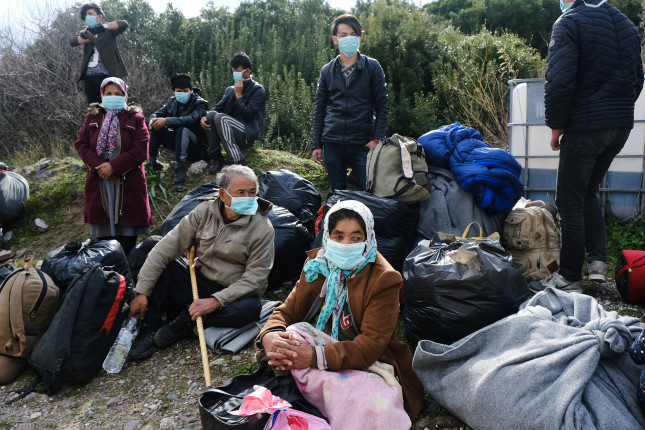
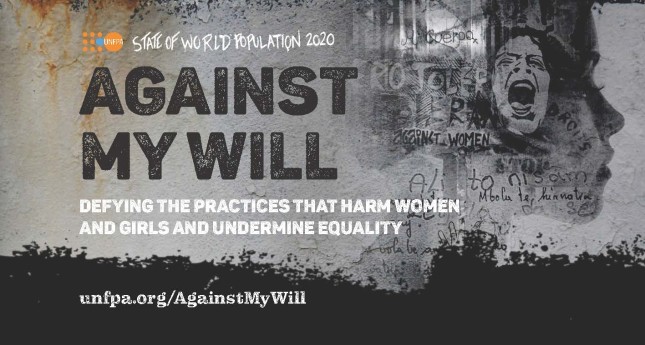
 To recover from the devastating impacts of COVID-19, we will need to understand the risks and environmental factors that caused the novel coronavirus and other zoonotic diseases to emerge in the first place, according to a new report by the United Nations Environment Programme and the International Livestock Research Institute. The report,
To recover from the devastating impacts of COVID-19, we will need to understand the risks and environmental factors that caused the novel coronavirus and other zoonotic diseases to emerge in the first place, according to a new report by the United Nations Environment Programme and the International Livestock Research Institute. The report, 